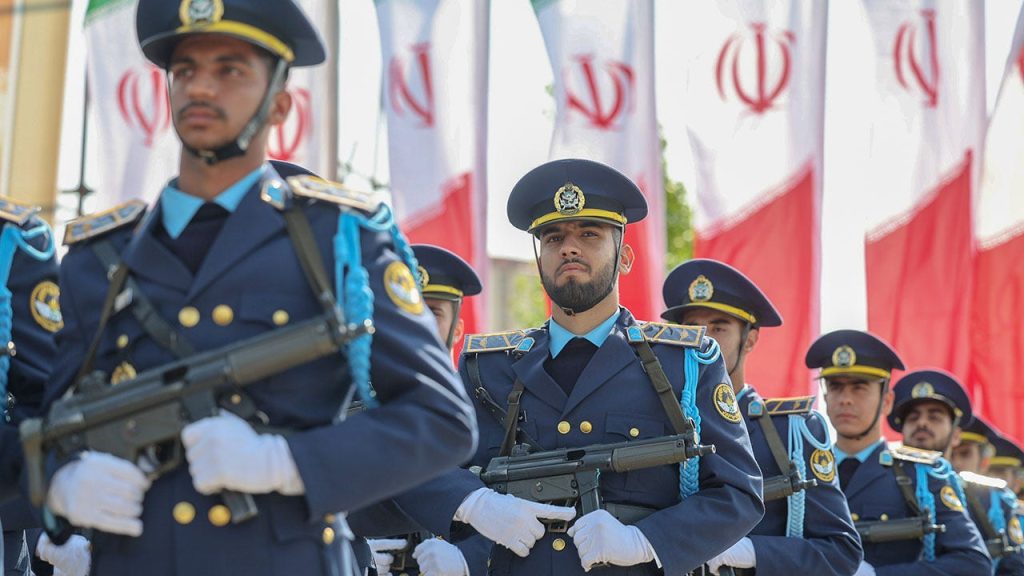An Iranian senior official has stated that Tehran has no immediate plans to retaliate against Israel after the Jewish state carried out limited strikes in Iran’s Isfahan province, where the Natanz nuclear facility is located. This follows Iran’s firing of missiles and drones at Israel in response to a suspected Israeli airstrike on the Iranian consulate in Damascus that killed several individuals, including a senior commander in Iran’s Revolutionary Guards Corps. The U.S. was not involved in the recent Israeli strikes, and there was pre-notification from Israel to the U.S.
Iranian state media reported that three drones were shot down over Isfahan by air defense systems, but all sites in the Natanz area were declared “fully safe” by Iranian state television. The International Atomic Energy Agency confirmed that there was no damage to the nuclear facilities, and called for extreme restraint from all parties, emphasizing that nuclear facilities should not be targeted in military conflicts. Details regarding the specific target of the strike were not immediately available, but it was confirmed by sources that it was not nuclear or civilian in nature.
As of early Friday morning, Pentagon officials have not confirmed the strike, and the White House and National Security Council have chosen not to comment on the situation. This development comes amid escalating tensions between Iran and Israel, with both sides engaging in retaliatory strikes following previous attacks. The situation remains fluid, with uncertainty surrounding the rationale behind the recent strikes and the potential consequences they may have on the region. International observers are closely monitoring the situation to assess the impact on global security and stability.
The recent strikes highlight the ongoing conflict between Iran and Israel, with attacks and counterattacks escalating tensions in the region. The targeted strikes in Isfahan and Natanz raise concerns about the safety and security of nuclear facilities, as well as the potential for further violence and instability. The involvement of outside actors, such as the U.S., adds another layer of complexity to the situation, as international stakeholders seek to navigate through a fragile diplomatic landscape. The lack of immediate retaliation from Iran offers a temporary reprieve, but the underlying grievances and hostilities between the two nations remain unresolved.
The Iranian official’s claim that there are no immediate plans to retaliate against Israel suggests a desire to de-escalate the situation, potentially signaling a willingness to engage in dialogue and diplomacy. The confirmation that the recent strikes were not nuclear or civilian targets provides some reassurance, but the lack of clarity surrounding the intended target underscores the need for transparency and communication between all parties involved. The International Atomic Energy Agency’s call for restraint underscores the importance of protecting critical infrastructure and avoiding actions that could lead to further instability in the region.
As tensions continue to simmer between Iran and Israel, the international community must remain vigilant and proactive in promoting dialogue and conflict resolution. The recent strikes serve as a stark reminder of the fragility of peace in the region, and the potential consequences of unchecked aggression and retaliation. As the situation evolves, all parties must exercise caution and restraint to prevent further escalation and work towards a peaceful resolution to the underlying conflicts. The involvement of outside actors, such as the U.S., further complicates the situation and underscores the need for coordinated diplomatic efforts to defuse tensions and foster stability in the region.


